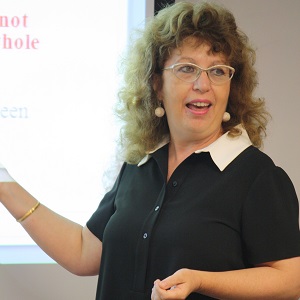Information
Venue
Start
End
23 September 2015 | Distinguished Speaker Lecture
The Regime of the Turkish Straits: Past and Present
Introduction

The Turkish Straits (Straits of Istanbul and Çanakkale), as the only waterway linking the Black Sea to the world oceans, was by geography destined to be a hub of international high politics. Dominated by the Ottomans for centuries against Czarist Russia’s ambitions, the Turkish Straits have endured the many challenges being in one of the world’s most complex geopolitical settings.
Since 1936, the passage of merchant vessels and warships has been regulated by the Montreux Regime of the Straits. The Montreux Convention created a unique regime and is also one of the long-standing conventional regimes that was the basis for article 35 (c) of the 1982 United Nations Convention on the Law of the Sea. The Montreux Convention, dating back to the League of Nations, has survived World War II, the pressure of Stalin’s demands to control the Straits during the Cold War, and has weathered international conflicts, such as the recent annexation of Crimea by Russia.
The Turkish Straits are also recognised as one of the riskiest waterways to navigate where some of the world’s most disastrous shipping accidents have occurred. The Strait of Istanbul, with annual passage of 50,000 ships, cuts through the very center of Istanbul, today a city of 17 million residents. In response, in 1994 the Turkish government, against the backdrop of discovery of rich new reserves of Caspian oil that would be transported through the Straits, adopted new shipping regulations to improve safety and protection of this waterway. These regulations sparked a debate in the International Maritime Organization (IMO) concerning Turkey’s right to impose conditions in light of the Montreux Convention. Parallel to this controversy in the IMO was the emerging pipeline politics in the Black Sea region between the Western sponsored Baku-Tblisi-Ceyhun pipeline, seen as a by-pass alternative to the risky Turkish Straits.
More recently, the Turkish Government has launched the idea of constructing a canal – Canal Istanbul – from the Black Sea to the Sea of Marmara, to provide an alternative to the Strait of Istanbul for tankers transporting dangerous or hazardous cargoes, which has in turn raised questions of its impact on the Montreux Convention.
The lecture provided both a historical and current overview of the legal regime of the Turkish Straits.
Presentation
To download Dr Oral’s presentation in PDF format, click here.
About the Speaker
Dr Nilufer Oral is a member of the Law Faculty at Istanbul Bilgi University and Deputy Director of the Marine Research Center for the Law of the Sea. She is a Distinguished Fellow of the Law of the Sea Institute, University of California School of Law, Berkeley; a Scholar-In-Residence, University of Virginia Law School in 2005 and has lectured on several occasions at the Rhodes Academy for the Law of the Sea.
Dr. Oral was elected to the IUCN Council for Western Europe (2012-2016) and is the IUCN Oceans Focal Point. She serves as Chair of the IUCN Academy on Environmental Law and co-chair of the Specialist Group on Oceans, Coasts and Coral Reefs for the IUCN World Commission on Environmental Law.
Dr. Oral serves as legal advisor to the Turkish Foreign Ministry on law of the sea and climate change and has participated in the Turkish delegation at the International Maritime Organization and as a negotiator at the climate change negotiations. She has been nominated by the Ministry as a candidate to the United Nations International Law Commission (2017- 2022).
She has also been involved as a legal expert in a number of projects with the Turkish Science Council on marine environmental issues, EU and UNDP.
Dr. Oral is a member of the Board of Directors, Jon Van Dyke Institute, Richardson School of Law, University of Hawai’i, American Society of International Law, and the European Society of International Law.
She is co-editor with Professor Charles Norchi of the International Straits of the World Series (Brill Publishers) with numerous other international publications.


